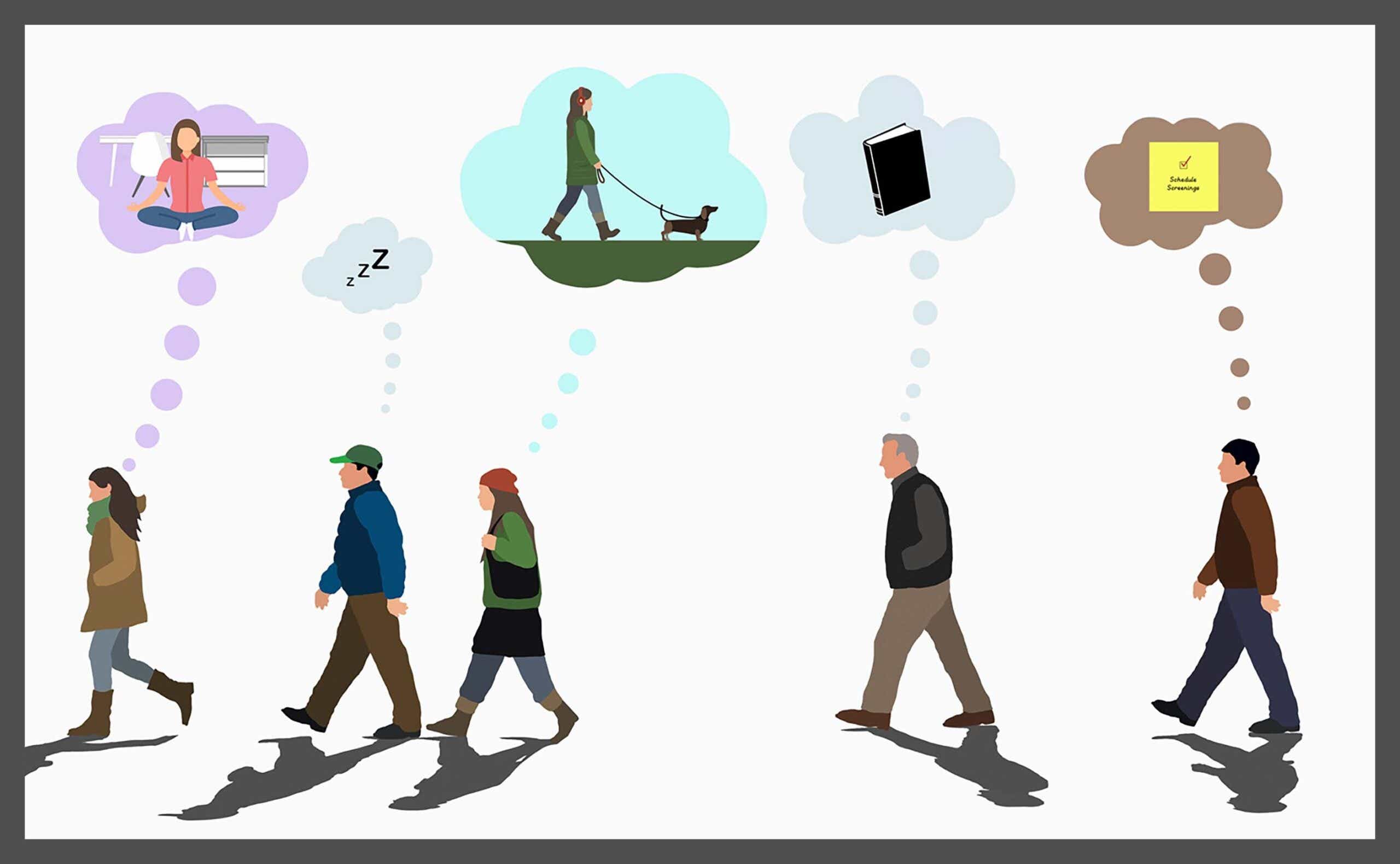We’re just a few days into January, so hopefully, you’re still committed to your New Year’s resolutions. Just like every year, many of us will attempt to get back into a regular workout schedule, and maybe even return to the gym. However good our intentions are when we first say, “this is the year I’m finally going to get in shape,” we won’t all follow through on our commitments to attend a daily yoga class or never skip leg day. In fact, according to 2016 research, up to two-thirds of gym memberships go completely unused. While that statistic might sound a little bit depressing, the good news is that there are many other ways to improve your health that don’t carry a monthly fee. In fact, once you build these habits into your daily routine you might even start to look forward to them. We’ve picked five small changes you can make this year that will improve your health far more than an unused gym membership.
Schedule your screenings
Whether you are a frequent flyer or only see your doctor once a decade, it’s never been more important to focus on your personal health. This starts with staying up-to-date with preventive care. When you sit down with your doctor this year, cancer screenings should be at the top of the list for discussion, as guidelines may have changed since your last visit. Within the past few years, leading health experts with the U.S. Preventive Services Task Force have updated their recommendations to move the age for colorectal cancer screening from 50 to 45. If you fall into this age group, you may already be behind. No time to get to a doctor? Telehealth is making health care more accessible. Some screening options, such as Cologuard for colorectal cancer, can be prescribed online and collected in the privacy of your own home.
Go for a walk
Walking consistently ranks as a top fitness option because it’s no cost, it’s available anywhere, and most importantly, it works. The health benefits of walking go beyond cardiovascular health and weight control. In fact, researchers have found that walking can help reduce your cravings for chocolate and other sugary foods. Taking brisk walks regularly can also help improve your mood and memory, strengthen your immune system, and reduce stress, tension, and joint pain. A study by the American Cancer Society found that the risk of developing breast cancer was 14 percent lower for women who walked seven hours or more a week compared with women who walked three hours or less.
Get some sleep
If you’re reading this after midnight, this one’s for you. Sleep: You know you need it, but many of us aren’t getting enough of it. The Centers for Disease Control and Prevention (CDC) defines short sleep duration as getting less than seven hours of sleep per night. About 35 percent of men and women fall into this category, though the percentage may be higher depending on where you live. Like walking, the health benefits of sleep are highly desirable, including maintaining a healthy weight, reducing your risk of diabetes and heart disease, improving mental abilities, and even reducing your risk of accidents.
Read a book
Curling up with a good book is one of life’s simple pleasures — and it’s also one of the first things we cut out when life gets busy. But research shows it’s something worth carving out a few minutes for each day — bookworms outlive non-readers by about two years, a Yale study shows, and the National Endowment for the Arts says reading can advance one’s job prospects, improve empathy, and reduce stress. If you’re looking for a new book, might we suggest Going There?
Reflect and recharge
The pressures of everyday life, work, and family don’t leave much time for us to slow down, but there’s plenty of evidence to suggest taking time to reflect and recharge has significant health benefits. And people seem to be getting the message: mindfulness apps have surged in popularity in recent years. Meditation has been shown to decrease stress, anxiety, and blood pressure, as has prayer. Similarly, journaling can help with regulating emotions, prioritizing problems, and promoting positive self-talk. The common thread running throughout these practices is that they help you momentarily detach from the stresses of day-to-day life.
No matter which of these tips you explore, remember to be kind to yourself, even if your New Year’s resolutions run into roadblocks. Rather than dwell on what didn’t work, focus on what does, and you’ll be on your way to becoming a bit healthier in 2023.
If you are 45 and older and at average risk for colon cancer, talk to your doctor to see if Cologuard may be right for you. Rx only. See Cologuard.com for Important Risk Information.
The information provided on this site isn’t intended as medical advice, and shouldn’t replace professional medical treatment. Consult your doctor with any serious health concerns.









